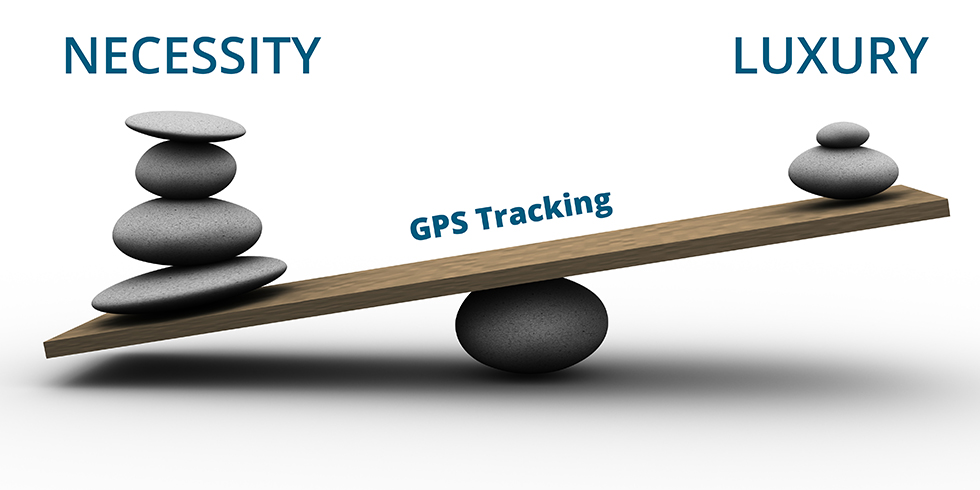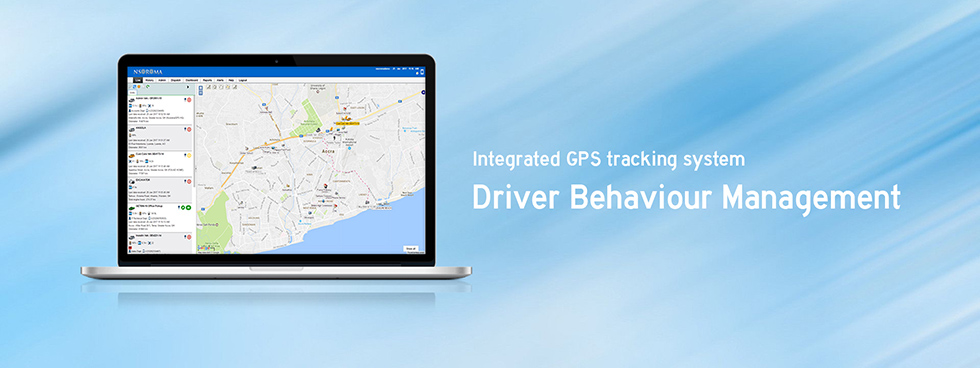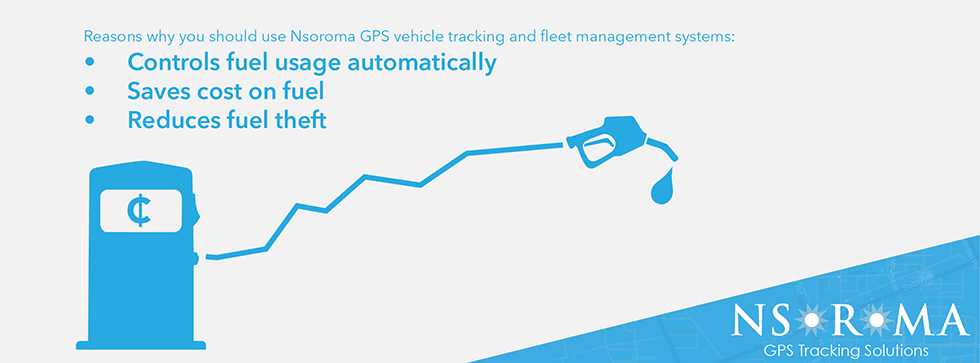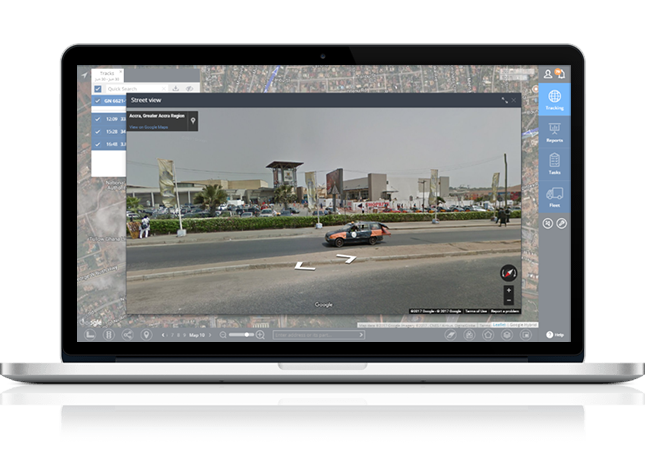“GPS Tracking in Industry Is a Necessity Not a Luxury; Transforming the Ghanaian Work Culture to a High Level of Productivity, Accountability and Safety”

There is currently a growth of Industry in Ghana and while Industries have always existed, they have always failed to reach optimum productivity due to lack of proper oversight of their human resource capital. This is especially evident in the transportation of goods and services by vehicle fleets. Currently the behaviors of transportation divisions of supposedly structured organizations is in dire need of reform. Due to our extensive customer experience, Nsoroma GPS Ltd has been able to amass a colossal amount of revealing data from the field. We have found that there are substantial financial losses that are routinely incurred by these enterprises by loss of productivity through various inadequacies in vehicle fleet management-some of them obvious, but most are unseen. It is what is not seen that carries the largest burden of financial loss over the duration of a fiscal year. This article is tailored for visionary fleet managers and CEOs with the goal of employing a solution based approach to saving money to these pervasive problems that have routinely and silently plagued the Ghanaian Industrial sector.
The obvious financial losses from poor fleet vehicle management arise from catastrophic events such as road accidents, while the unseen losses arise from long term and unseen illicit driving practices. Both can be brought under stringent control by analyzing meaningful and applicable data from the GPS tracker.
Listed below are the prevalent behaviors that erode the productive and fiscal output of Ghanaian Industries. We will describe solution based approaches to each problem.

Unauthorized Vehicle Use
It’s the little things that add up. Business oriented organizations usually lack well managed vehicle fleet policies that monitor vehicle movement and associated costs. Undocumented and unauthorized usage is common practice in Ghana.
This manifests in deviations from assigned routes and destinations to unauthorized movement of the vehicle without any accountable oversight.
The associated fuel consumption costs and absence of personnel who should be actually working in the field presents invisible and unjustified expenses that inflate business expenditure overheads. This is like a virus spreading silently and wreaking havoc till the clinical symptoms begin to manifest- In this case the symptom is the shrinkage of the company’s profit margin. This is usually ongoing and slowly chips away at fiscal gains. One has to realize that the costs of goods and services run on the fuel expenses. It is a brute fact that affects the bottom line of everything in this global economy. Ghana is a 3rd world economy that is rich and abundant in natural resources yet is one of the most wanting in terms of maximizing its human resource potential. This is due to lack of polices and measures that ensure that the right people are doing the right things at the right time. Unauthorized vehicle movement presents a huge a burden on capital resources at all levels in institutions looking to maximize their cash flow in relation to their expenditures.
GPS tracking comes as a solution to this as it presents a complete approach to managing employee productivity in relation to vehicle movement and its associated costs. All it takes is the following;
Unauthorized vehicle movement in Ghana presents a huge a burden on capital resources at all levels in institutions looking to maximize their cash flow in relation to their expenditures.

- A schedule of designated tasks, routes and destinations.
- Designation of employee badges/ ID numbers and their tasks to their assigned vehicles.
- An installed tracking device.
- Connection to the main server.
All these can be easily inputted into a proprietary software app that monitors the movement and designated destinations of each employee as they move in their assigned vehicles in real time. This also takes into account the number of productive employee hours worked on the road. Simply put it is actually a virtual task manager for all company employees assigned with the transportation of goods and services.
A fully integrated GPS tracking system is the smart solution to thorough employee management in the transportation of good and services. This is urgently needed for industries in 3rd world economies like Ghana to be able to survive and thrive. It is also worthy to note, that these are standard practices for successful industries in developed economies.

Driver Behavior
To say that driving in Ghana or the city of Accra is rife with disorderliness and “the survival of the fittest” is the mentality of driving is not only a trite comment but rather a brute fact. I have witnessed this first hand on many occasions. Road safety regulations leave much to be desired and as a consequence of this, driver behavior is unregulated. The majority of accidents, their associated mortality and costs arise from dangerous driver behavior as opposed to unfortunate accidents. For Industries that manage vehicle fleets the human and financial costs associated with accidents due to bad driving habits are immediate and hefty. These costs may be wholly incurred by the corporate entity or maybe burdened by the insurance companies, whom may in turn raise their premiums against the corporation.
For Industries that manage vehicle fleets the human and financial costs associated with accidents due to bad driving habits are immediate and hefty. These costs may be wholly incurred by the corporate entity or maybe burdened by the insurance companies, whom may in turn raise their insurance premiums against the corporation.
So where does GPS tracking come in?
![]()
GPS tracking has evolved to a high level of sophistication where the tracking system can be calibrated to identify acceptable driving behavior in relation to the type of vehicle- for example a saloon car vs. a Truck. It can discern variables such as harsh breaking, sudden acceleration, sharp turns and unwarranted vehicle velocities. With the Driver’s identification number imputed in the system, the Tracking software is able to deliver real time reports on deviations from what are acceptable driving behaviors. In addition to this it is also able to create a driver safety profile on a daily, weekly, monthly or yearly basis. This invaluable information allows fleet managers to not only control driver behavior but also utilize this information to rank drivers and provide incentives as a means of improving employee productivity.
GPS Tracking Platforms Now Provides Fleet Managers With the Solution of Controlling Driving Habits by Delivering Custom Profile Reports on Actual Driver Behavior

Monitoring Fuel Consumption and Its Related Cost
Corporations that depend on transportation for the delivery of goods and services invest a substantial amount of their operating expenses on Fuel. In Ghana this would be especially true due to Traffic congestion and poor road networks. Indeed the rate of fuel consumption is significantly higher in economies such as ours as opposed to developed nations. For this reason it is imperative that there be measures that maximize the efficiency of fuel consumption. However this is not the only reason, in Ghana there is an unseen culture of siphoning fuel from the tanks of corporate vehicles-especially of those that have large fuel capacities. This enterprise is usually sponsored by the drivers themselves and the fuel gets resold on the black market by middle men. Consequently the corporations end up always spending more money on refueling a full tank as they are unaware of the true consumption rate. The other silent epidemic is practice of pretending to fill a full tank. Inevitably this leads to the same outcome, which is increased expenditure on Fuel. Now couple this with the problem of poor traffic conditions and unwarranted deviations from circumscribed routes as mentioned above and you now have a compounded fuel expense problem.
The Industrial Sector Faces a Huge Challenge of Which It May Not Be Currently Aware of and This Is the Management of Fuel Economy. Together With Traffic Congestion, Illicit Siphoning and Fueling Practices Silently Erode the Financial Bottom Line of Corporations in Ghana.
How Does GPS Tracking Solve This Problem?
GPS tracking devices come with the option of being equipped with Fuel sensors. These Sensors acutely measure fuel levels in the tank. In addition the sensors when interfaced with the various electrical components affords it the ability to discern the following;
- Measure the fuel levels in the tank and how to determine its consumption rate as a function of distance and time. This consumption rate can be standardized to the make of that particular vehicle in relation to the dynamics of its behavior on the Accra City road. For example the tracker will able to determine the base consumption rate for slow movement during traffic congestion, in relation moderate consumption during regular inner city driving. As this data is collected a profile report for that vehicle can be generated for the fleet manager. This profile report can also be reconciled to the driver’s predetermined circumscribed route
- It will be able to detect sudden drops in fuel levels. This is usually a sign of siphoning of fuel from the tank or a rapture in the tank.
- With already stored data about the tank’s holding capacity, when there is scheduled refueling it will accurately determine what level the tank was filled to. This allows the fleet manager to know whether the funds dispersed for fueling where commensurate to the amount of fuel actually purchased.
The Capstone of employing a GPS tracker is that besides collecting raw data to be deciphered by the end user, the service provider also delivers a 24/7 full service reporting platform that is tailored specifically to meet the consumer’s needs. This is the Hallmark of Nsoroma GPS Ltd. We take a holistic approach by fully understanding our customer’s needs. We are dynamically and continuously engaged with our customer’s data.
Health and Safety Standards
This sub-topic while applicable to all especially relates to corporate entities that engage huge fleets involved in transporting heavy loads over long distances. This is especially true in the case for moving fuel, gas and other natural resources across great distances. The costs of transportation is usually very high as are the risks- depending on the kind of load. Drivers of such large trucks over long distances need to make scheduled stops after 2-3 hours of continuous driving. This is a requirement as drivers need to rest periodically during long trucking trips. The reason for this is very obvious, drivers have been known to doze off at the wheel while moving such volatile cargo. The other issue of extreme importance is safety compliance and this means having well trained drivers carrying out maintenance checks before long road trips and at prescribed times after certain mileages have been covered. These checks include tire pressure, engine temperature, and water and oil Levels. There are even more variables that can be monitored such as cold room temperature if the cargo hold is carrying perishable items. As a further note, as long as there are physical variables that can be measured on a transporter it can be captured by the tracking device and translated into meaningful and applicable information to an end user.

As long as there are physical variables that can be measured on a transporting vehicle it can be captured by the tracking device and translated into meaningful and applicable information to an end user-this will be the fleet manager.
Final Notes Consideration

It has been made clear from the above applications of GPS tracking, there is immense utility for the Industrial sector. However this will require a well-trained Fleet manager to be able to utilize the most of GPS tracking to the benefit of the corporation that employs vehicle fleets as a part of its operation. That said Fleet management is a whole specialty niche on its own that requires due attention. Nsoroma GPS systems Ltd offers a comprehensive approach by training fleet managers in the judicious use of a GPS tracking platform. We do this as well as receive live data feeds on our server as a means of offering 3rd party oversight.

